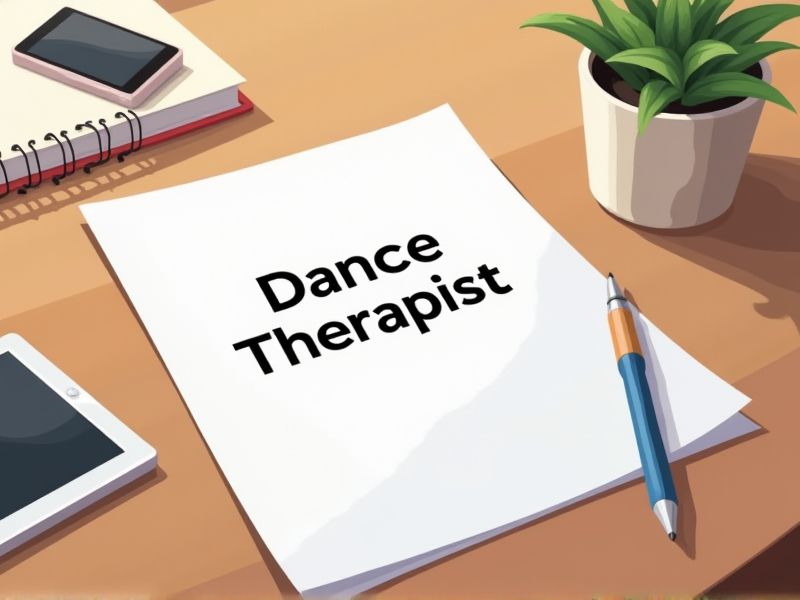
Dance therapists work with individuals dealing with emotional, psychological, and physical challenges, leveraging dance movement as a therapeutic tool to foster improved well-being. These specialists need specific certifications to ensure they have the necessary skills to safely and effectively guide clients through therapy sessions. Certification programs provide structured training in therapeutic methodologies, understanding body movement, and developing empathy, crucial for effective practice. Here are key certifications beneficial for aspiring dance therapists.
Registered Dance/Movement Therapist (R-DMT)
A Registered Dance/Movement Therapist (R-DMT) is needed for dance therapy to ensure practitioners meet established professional standards in the field, enhancing credibility with clients and other healthcare professionals. Without certification, practitioners might lack comprehensive training in the therapeutic elements of dance, potentially limiting their effectiveness in addressing clients' emotional and psychological needs. R-DMTs bring a structured understanding of body-mind connections, which is crucial for developing effective interventions based on each client's unique situation. The certification also promotes a baseline for continuous learning and development, encouraging therapists to stay updated with current research and methodologies.
Certified Dance/Movement Therapy Practitioner (CDMTP)
Obtaining certification as a Dance/Movement Therapy Practitioner ensures adherence to established professional standards, which enhances the credibility and trustworthiness of dance therapists. Rigorous training and certification provide practitioners with the necessary skills to address diverse therapeutic needs effectively, promoting mental and emotional well-being. Certification often requires continuous education, keeping practitioners updated on the latest research and techniques, improving overall therapy outcomes. Certified practitioners are better equipped to work collaboratively with healthcare professionals, ensuring integrated and comprehensive care for clients.
Expressive Arts Therapy Certification
Obtaining an Expressive Arts Therapy Certification enables dance therapists to integrate multiple art forms, expanding their therapeutic toolset to address diverse client needs. This certification demonstrates a therapist's comprehensive understanding of creative therapies, which can enhance client trust and therapeutic outcomes. Employers often seek certified professionals, as it provides assurance of standardized expertise and commitment to professional development. Certification also creates opportunities for networking with other therapists across disciplines, fostering collaboration and innovation in therapy approaches.
Certificate in Somatic Experiencing
A Certificate in Somatic Experiencing equips dance therapists with advanced skills to understand and alleviate trauma through the body. Training in somatic practices enhances their ability to interpret nuanced physical cues, which can lead to more personalized therapy sessions. This certification also provides therapists with a framework for managing stress responses, thus promoting safer therapeutic environments. In turn, these skills can significantly improve client outcomes by fostering deeper emotional and physical healing.
Trauma-Informed Care Certification
Trauma-informed care certification equips dance therapists with the skills to understand the effects of trauma on individuals' physical and emotional well-being. With this knowledge, therapists can create a safe and supportive environment that encourages healing without retraumatization. Treatment plans can become more personalized and effective, addressing the unique needs of trauma survivors. This approach enhances trust and communication between therapists and clients, promoting positive therapeutic outcomes.
Mindfulness-Based Stress Reduction (MBSR) Certification
Mindfulness-Based Stress Reduction (MBSR) certification equips dance therapists with tools to help clients manage stress more effectively through body awareness and movement, enhancing therapeutic outcomes. By integrating MBSR, dance therapists can offer a holistic approach, fostering a deeper mind-body connection in clients. Certified practitioners possess a standardized skill set that can validate their expertise and instill confidence in clients seeking therapeutic support. In a competitive field, such certification might differentiate practitioners, potentially increasing demand for their services.
First Aid/CPR Certification
Dance therapists often work in environments where physical movement is vigorous and intense. The risk of injury inherently increases in such settings, making First Aid/CPR certification crucial. With this certification, therapists can promptly respond to potential medical emergencies, providing immediate care and potentially minimizing the severity of injuries. Proper handling of these situations can foster a safer environment for clients, promoting trust and continual participation in therapeutic activities.
Licensed Professional Counselor (LPC) Certification
Obtaining LPC certification for a dance therapist provides a recognized standard of professional competency in mental health counseling. This certification enhances their ability to address diverse psychological issues clients may face, expanding therapeutic effectiveness. It allows practitioners to integrate advanced counseling techniques with dance therapy methodologies, offering a holistic treatment approach. The LPC credential also enables access to broader job opportunities and eligibility for insurance reimbursements, thereby expanding their practice's reach.
Certificate in Body Awareness and Movement Analysis
A Certificate in Body Awareness and Movement Analysis provides dance therapists with essential skills to understand and interpret body language accurately. Proficiency in movement analysis allows therapists to tailor interventions that address specific physical and emotional needs of clients. This certification enhances a therapist's ability to facilitate deeper therapeutic connections through movement-based approaches. Knowledge gained from such a program leads to more effective and evidence-based therapy sessions, improving client outcomes.
Yoga Therapy Certification
Dance therapists often work with individuals dealing with physical, emotional, or psychological challenges, necessitating an understanding of various therapeutic modalities. A Yoga Therapy Certification equips dance therapists with holistic tools to address these complex needs, enhancing their therapeutic repertoire. By integrating yoga principles, dance therapists can offer more comprehensive support, focusing on breath work, mindfulness, and body awareness. This certification also elevates the therapist's qualifications, potentially increasing their credibility and opportunities within therapeutic settings.
Summary
You gain enhanced skills and credibility in your practice after obtaining certifications as a dance therapist. This attracts more clients seeking specialized therapeutic approaches. Your ability to effectively design and implement therapeutic programs improves. Opportunities for career advancement and higher earning potential increase.
